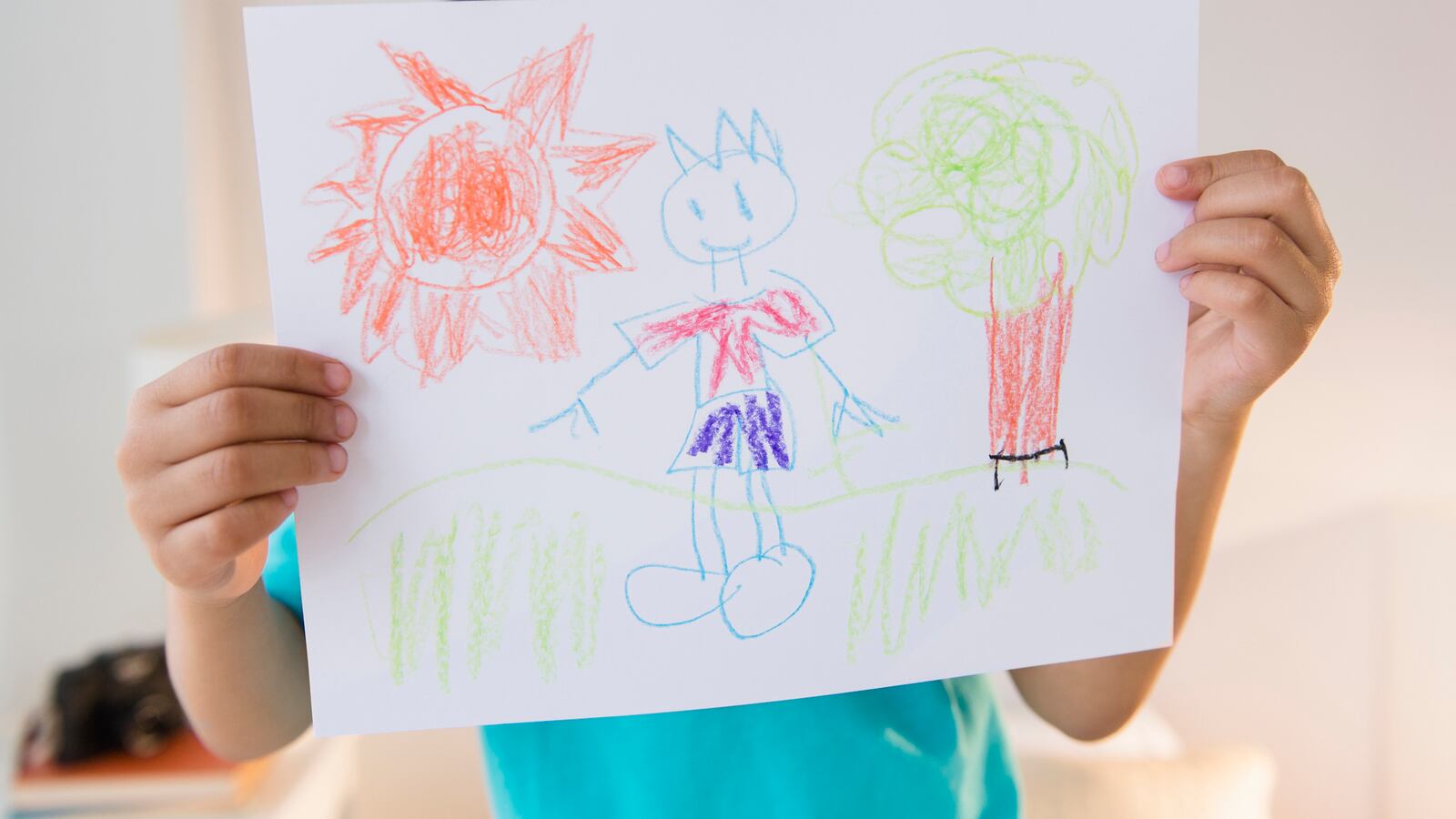A Colorado team is one of 15 winners to share in $1 million awarded by a Denver-based organization as part of a new contest recognizing innovative efforts benefitting children from birth to 3 years old.
The Boulder-based team will receive $80,000 for a project that helps little kids acquire language, thinking, and social-emotional skills using a cell phone app inside a stuffed animal.
Gary Community Investments, which gives grants and makes for-profit investments to benefit low-income children and families, announced the winners of the Early Childhood Innovation Prize on Tuesday afternoon. (Gary Community Investments, through the Piton Foundation, is a Chalkbeat funder.)
The Colorado team that won prize money developed a tool called MindScribe. It works like this. An adult slips a cell phone with a special application into the belly of a stuffed zebra. The app prompts the child to explain what they are doing or making and asks follow-up questions, such as “What happened next?” and “Why?”
MindScribe founder Layne Hubbard, a Ph.D. student in computer science at the University of Colorado Boulder, said her work as a teacher at Boulder’s Children’s House Preschool inspired the project.
“I thought back to storytelling and how powerfully the children’s original stories catalyzed growth, development, and connectedness,” she wrote via email. “I realized that I wanted to scale this opportunity to reach young children across diverse early childhood communities, especially those which are multilingual, low-income, or affected by trauma or disability.”
One little girl who stars in a MindScribe’s demonstration video describes her crayon drawing of a garden — and her fictional protagonist’s desire to change “boring weather” — to the MindScribe zebra for seven minutes.
But the girl, Mia, isn’t oblivious to the cell phone inside the paunchy stuffed animal. Instead, she’s delighted.
She explain how it works to her father, saying, “This is like the teacher but with a radio inside the teacher.”
Mindscribe, which is still in the pilot stage, began with three languages and is now available in 11.
The Early Childhood Innovation Prize, unveiled by Gary last fall, is distinctive because there are few contests that focus on very young children — despite a large body of evidence showing that high-quality care and education for this group yield significant financial and societal dividends.
Leaders at Gary invited prize submissions from teams with advanced ideas, early-stage ideas, and nascent concepts. Five advanced winners received $100,000 each, five early-stage winners received $80,000 each, and five beginning-concept winners receiving varying shares of $100,000. Gary also recognized seven teams, including one from a Colorado Springs-based network of child care centers, that didn’t win money but offered promising ideas.
The contest used an online platform that made each submission publicly viewable and allowed teams to get feedback from fellow candidates, and in some cases, mentoring from experts.
“We really wanted the prize to be an engaging opportunity for people in the early childhood field,” said Steffanie Clothier, Gary’s child development investment director.
Gary received 570 submissions, with winning ideas coming from nonprofit and for-profit groups, universities, city governments, and the National Head Start Association.
One winning team aims to eradicate book deserts by putting children’s reading materials in public spaces like barber shops and beauty salons. Another proposes classes on mindfulness to reduce child care providers’ stress levels. Several feature technology solutions — to improve child care business operations or promote early developmental screenings.
Clothier said although most of the prize winners are testing projects outside Colorado, their ideas could eventually be replicated here. She said the organization has not decided whether to hold the innovation competition again.

